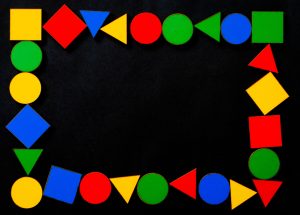Various research has shown why math is critical for kids. A study published in the Journal of Neuroscience reveals that children who engage in regular mathematical activity have healthier brains, increasing their attention and focus. In addition, the earlier kids learn math, the earlier they build critical life skills like self-confidence, decision-making, a growth mindset, and the ability to handle failure.
However, while math is vital to kids’ development, it’s not the easiest subject for kids to learn. Some children may find it too demanding, so they naturally shoo away. Thankfully, learning math doesn’t start with a complex; there are simple arithmetic skills that can build their interests and help them have a deeper understanding as they grow.
Let’s look at simple math skills your child can develop early to solve daily problems and exercises in the classroom.
7 Easy Math Skills to Teach Your Child
Here are the top simple arithmetic skills to teach your child.
1. Number sense
Number sense is the ability to count accurately. First, teach your child to count forward. For example, one, two, three, four. Afterward, train them to count backward, for instance, four, three, two, and one. Number sense is a great starting point to familiarize your child with numbers.
2. Representation
This involves using illustrations like pictures, symbols, and objects to bring arithmetic ideas to life. For example, rather than say, “4 + 4 =8,” tell them to add four plastic cups and four spoons and count them. Representations make math engaging and realistic for children. So, instead of abstract ideas, they have real objects to refer to.
 3. Spatial sense
3. Spatial sense
Spatial sense is called geometry by advanced learners. It introduces ideas of shape, size, position, direction, and space to students. For example, teach kids the difference between up, down, and various angles.
4. Estimation
Estimation is a common math skill that involves making an accurate assumption about the size or amount of an object. This means teaching kids the differences between various sizes and quantities, including bigger, smaller, more, and less. For example, you can show them snacks of different sizes and tell them to pick the bigger or smaller ones. Children have a basic idea of estimation if they can tell the difference.
5. Patterns
Patterns are shapes, images, and shapes that repeat consistently during a specific period. They help kids predict what comes next and make logical connections, enhancing their reasoning abilities. To do this, teach them the difference between summer and winter, day and night, the moon and the sun, etc.
6. Problem-solving
Problem-solving is the ability to analyze and solve problems critically. It involves using knowledge of past experiences and reasoning skills to solve challenges. To do this, encourage your kid to think outside the box and explore multiple options to solve a problem. In addition, provide practical challenges and urge them to find solutions.
7. Measurement
This involves finding the object’s weight, height, and length using various units of measurement like inches, pounds, or feet. Measurement skills also include identifying the difference in time and period, including minutes and hours. For example, teach your child to measure the length of a box or measure sugar and know the differences between the regular hours of the day.
How to Make Arithmetic Fun for Your Kids
Making math engaging for your child is an excellent way to spark their interests and make learning easier. Here are practical ways to make math interesting for your child.
1. Use everyday objects
Using everyday objects to teach kids makes math relatable. It’s also an excellent way to boost their retention. So, explore various objects around you to improve your child’s knowledge of counting, addition, subtraction, multiplication, etc.
2. Bake cookies
Cookies can be excellent arithmetic tools for kids. First, you can use them for counting, adding, and subtracting. Second, freshly baked cookies are great for fractions. To do this, ask your child to cut a cookie into fourths and halves with a plastic knife. Children will likely consider this experience engaging and memorable because it’s hands-on.
3. Play math games
Practical math exercises are fun for kids, and a great way to do this is to incorporate math games. There are several options, including monopoly and PayDay, and Life. Other imaginative and practical games include a math scavenger hunt. Simple counting skills with blocks are also more engaging than abstract calculations.
Improve your child’s arithmetic performance with Explico
Explico is the best online platform to enhance your child’s knowledge in math and other subjects. With AI-based assessment, live online sessions, private one-one-sessions, and analytical reports, there are no limits to enhancing your child’s performance. Explico examines students’ strengths and weaknesses, conducts periodic assessments to evaluate their understanding of a subject, and provides resources for improvement. Visit our portal to learn more about how we help.


